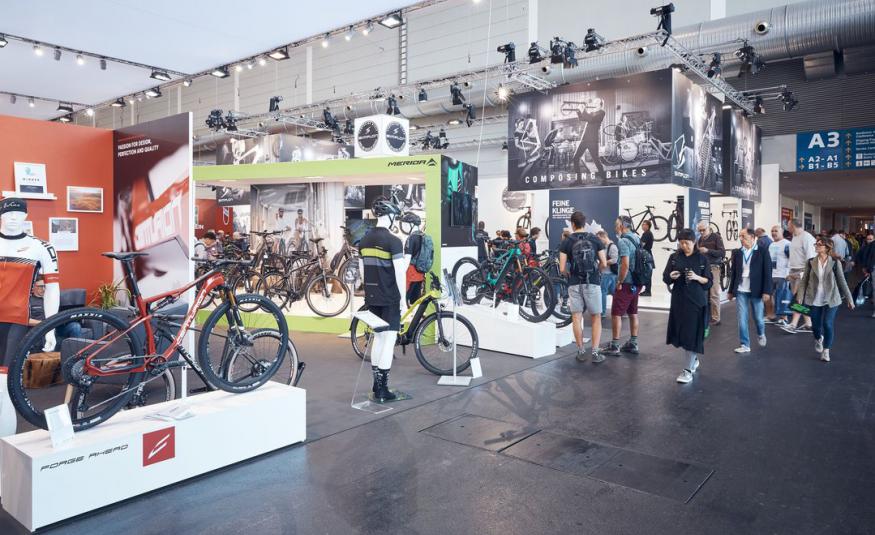Despite a still uncertain framework for holding exhibitions in Germany, organisers of the Eurobike 2021 tradeshow in Messe Friedrichshafen report high interest, with 800 exhibitors signed up for the 29th edition, 1 to 4 September. The 2020 edition was cancelled due to Covid-19.
“We are delighted to see that the industry’s most important manufacturers and suppliers are all on board for Eurobike 2021 in this unusual year,” said CEO Messe Friedrichshafen Klaus Wellmann. “The call for a physical platform to meet and exchange information and ideas is growing. Our event concept is ready to offer the best of both worlds for B2B and B2C.”
New for 2021 will be two Festival Days on the Friday and Saturday.
“The need within the industry to be at the ‘class reunion’ is bigger than ever. Everyone is eager for personal dialogue, wants to see the product highlights, talk about the challenges and enjoy the community spirit,” said head of Eurobike, Stefan Reisinger. “At the moment there is still some uncertainty, but at the same time, there is big interest to be there. We are meeting the challenges and offering maximum flexibility, transparency and openness for all interested parties. Registration for Eurobike 2021 is still open and we’re offering a wide range of participation formats.”
The exhibition halls at Lake Constance will offer theme areas for cargo bikes, e-mobility solutions, and start-ups and influencers, while the Eurobike Awards are being extended to include new categories: Road & Performance, E-Cycling and Gravel & Adventure.
Expert discussion forums for trade and industry are planned at the Eurobike Academy and there will be a Bike Biz Revolution Conference the day before the show proper, on 31 August 2021.
Organisers had tried to keep their community in touch via digital events in 2020, Reisinger explained, and added: “Digital events can help promote dialogue and an exchange of ideas, but cannot replace a live tradeshow. In future, the ideal thing would be to combine both formats. A big, physical, live event – supported by selected digital elements - this is what the future will look like, and I’m confident that it will work.”
Reisinger also acknowledged manufacturers were moving away from seasonal planning and that tradeshows, he believes, have a very different function to what they did 10-20 years ago. “We see ourselves as a kind of annual class reunion. And this is what many industry players have requested. Whether it takes place in September, June or even February is initially irrelevant. What is important is to have a common industry platform, to exchange ideas, exhibit brands and products both inside and outside the industry, to act as a vehicle for cycling, for political messages and for end consumers – enthusiasts, fans, young riders and future users. This is the platform that everybody wants and we can deliver it.”





